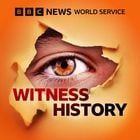On 11 September, 2001, a small Canadian town called Gander became a haven for thousands of airline passengers and crew stranded after the 9/11 terror attacks.
The attacks on the World Trade Center had forced the closure of US airspace leaving many flights unable to land. Within hours, 38 planes with 7,000 passengers, had been diverted to Gander, effectively doubling the town's population. But what happened next showcased the extraordinary kindness and generosity of the Newfoundlanders.
For five days, local residents provided beds, food, medicine and clothing for those stranded during the crisis, and didn’t ask for a cent. They even put on music evenings, barbecues and canoe trips to keep their visitors entertained.
Beverley Bass, one of the plane captains, tells Jane Wilkinson about Gander’s extraordinary hospitality during one of the most traumatic events in modern history.
Eye-witness accounts brought to life by archive. Witness History is for those fascinated by the past. We take you to the events that have shaped our world through the eyes of the people who were there.
For nine minutes every day, we take you back in time and all over the world, to examine wars, coups, scientific discoveries, cultural moments and much more.
Recent episodes explore everything from the death of Adolf Hitler, the first spacewalk and the making of the movie Jaws, to celebrity tortoise Lonesome George, the Kobe earthquake and the invention of superglue.
We look at the lives of some of the most famous leaders, artists, scientists and personalities in history, including: Eva Peron – Argentina’s Evita; President Ronald Reagan and his famous ‘tear down this wall’ speech; Thomas Keneally on why he wrote Schindler’s List; and Jacques Derrida, France’s ‘rock star’ philosopher.
You can learn all about fascinating and surprising stories, such as the civil rights swimming protest; the disastrous D-Day rehearsal; and the death of one of the world’s oldest languages.
(Photo: Passengers and crew at Gander airfield, 2001. Credit: Town of Gander)


